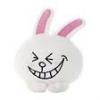
From Belfast - 中立
By skylee,
I took this picture at the Queen's University of Belfast.
If you like, you could try to rewrite the sentence to make it more concise.
- Read more...
- 2 comments
- 2634 views

 143
143
 85
85
 61
61
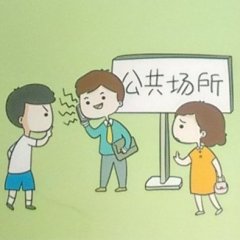 11
11
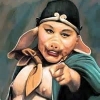 8
8
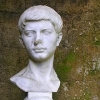 8
8
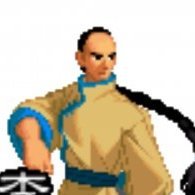 6
6
 4
4
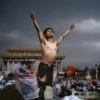 4
4
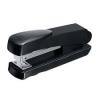 2
2
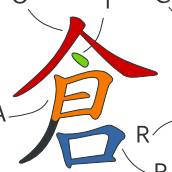 2
2
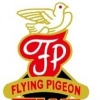 2
2
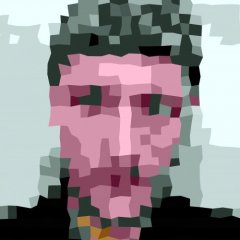 1
1

By skylee,
I took this picture at the Queen's University of Belfast.
If you like, you could try to rewrite the sentence to make it more concise.

By skylee,
Again I am in Taipei. This is not a well planned trip as I booked my ticket/hotel and did all the arrangements just yesterday. Anyways.
I've just taken this picture at Eslite in Xinyi. 男化妝室 is just so odd.
Thr other picture is a bonus, haha.
Is there anything I should do so that the pictures can be of the correct orientation after uploading?

By skylee,
They are the inappropriate/ wild behaviours of the sacred deers in Nara. I found the notice very amusing and laughed out loud when I first saw it.
The other one was taken in Himeji. The pattern was on an advertising banner. I thought it was romantic.

By skylee,
I just think this is kind of cute.
Edit: I have added a photo taken at the Central Market.

By skylee,
I am now in Seoul. The city is much more tourist-friendly than when I first visited it solo over 10 years ago. There is English on most signs in Seoul now. And there are Chinese characters too. But sometimes I can't help but wonder if the Chinese characters are supposed to be Chinese, or Japanese Kanji or their own Hanja. Sometimes the characters don't look quite right if they are meant to be Chinese.
Look at the first two picturs. There is something very wrong in the first one, at least it is not in line with the common understanding AFAIK. I am not sure if it is intentional. Is the term 正体字(not 正體字) used to refer to simplified characters at all?
The 昇 in the third picture is wrong AFAIK.
I was quite speechless when I saw the sign in the fourth picture. 乳母車?貸與? They can't be right, right?
PS - additional picture added on 29.4.2014. This is relevant to the fifth reply below.

By skylee,
I went to the Xu Bing Retrospective in Taipei today, and am very glad that I did. I am sure there is a lot of information on the internet about his works, but I was fascinated all the same.
Many of his works are related to languages. Like his ABC series which is about representing English letters using Chinese characters. (Photos 1 to 2)
Then there is the square word calligraphy series, which is about writing each English word in a square. I think the idea is similar to the Korean script, but the Xu Bing version is not as tidy, mainly because English is not Korean, IMHO. And some square words look quite messy, as there are just too many components (long words). I don't think it is a very inventive series and the idea is not very different from the Chinese letters that tattooists use to con the uninformed. But it is fun, and is not difficult to learn and decipher. And, hey, it is Xu Bing. (Photos 3 to 6) You can see in Photo 3 "square word" and "Xu Bing". And in Photo 6 the first words (from left) are "four poems of W B Yeats, calligraphy by Xu Bing".
And then there is of course the 天書 series (Photo 7), which needs no introduction. I am not a big fan of his more recent 地書 series, though.
The exhibition will end on 20 April 2014.

By skylee,
I went to Singapore for a weekend break and spent most of my time in museums (instead of Little India, the waterfront and malls, etc), which was probably why I liked the country a bit better. I have some observations on the Chinese shown on some exhibits in the museums.
First, 肅清. Actually what struck me was the title "The Sook Ching". It is based on the Cantonese pronunciation I suppose. When I showed my friend this photo she was quite surprised that the title was not the "massacre".
Second, an old notice for Chinese hawkers. Note the different directions in which the words are printed on the same notice - vertically from right to left, horizintally from left to right, and horizontally from right to left. ![]() Traditional Chinese characters are used on this notice, and the name of the country on this notice is 新嘉坡. But this is a decades-old notice.
Traditional Chinese characters are used on this notice, and the name of the country on this notice is 新嘉坡. But this is a decades-old notice.
Third, the name of the dish Char Kway Teow. 炒粿條 is used in the photo. If I am not mistaken it is the same thing as what we call 炒貴刁 over here in HK. The Chinese terms are very different
Fourth, Chinese by a Vietnamese artist. It is all right. Although some characters used are odd / wrong (like the 垂 and 淂) but it is not difficult to get the general idea of the meaning.
I hope you find them interesting. Please share your views.

By skylee,
I asked the shop assistant to let me take a photo, explaining to her that people who don't speak Cantonese might not understand what the words mean at all.
So, do you know what the words mean?

By skylee,
叢林小姐, what a stunning name.
Extra - a notice about Lulu.

By skylee,
I took this photo at La Sagrada Familia in Barcelona yesterday, for the Chinese characters in the picture.

By skylee,
I had not noticed these plaques until today. I think some of the translated names are great, especially 沈弼 (Sandberg), 唐信 (Thompson), 浦偉士 (Purves) and 費樂怡 (Farrell). Sandberg and Purves were Taipans.
PS - 尤德 (Youde) is also pretty good.

By skylee,
I took the first picture last saturday in Tsimshatsui. It was a locked-up newspaper stall, I guess. Obviously those were promotion material for a film, but they looked interesting. If you like you can try to identify the two mistakes among the handwritten words.
The second picture was taken at Hysan Place in Causeway Bay. I am not sure what it was. I guess it was a stage for some performance.

By skylee,
The giant rubber duck parked next to the Harbour City in Kowloon has been a sensation during the past few weeks. And its flattening and removal for maintenance was "heartbreaking". Some friends have sent me different jpegs on the duck, and I am posting two here. I find the ID card very amusing.

By skylee,
I think this is quite clever.

By skylee,
I took this photo at the HK Central Library this afternoon. If you like, you can try to identify what is wrong with the words used.

By skylee,
I just want to show a butchered Chinese word on a window in Valencia. To be fair, the same word on the next window had its both limbs intact.
同場加映 (though it is not related to Chinese) :I went to see a free photo exhibtion celebrating the 10th anniversary of the renowned City of Arts and Sciences when I was there. And when I read the English caption (photo attached) of a photo with a dophin in it, I laughed out. Who do you think is/are to be X-rayed? ![]()

By skylee,
I said to the cashier, "兩個豬仔包". And this is what such small olive/round shaped bread rolls with hard. . skin are called here.
I wonder what it is called in Putonghua, English or in other languages. Anyone wants to share?
The bread is going to be my dinner tonight.
EDIT: New photo of a 豬仔包 sandwich with cava added on 19.1.2013. Some cava has already gone to my head. ![]()

By skylee,
A friend, who is a professional translator (E->C, C->E) sent me this picture, which he had got from a friend of his. His brief remark reads, 傑作,甘拜下風。 ![]() This photo reminds me of one I took in Shanghai featuring some "west point" .
This photo reminds me of one I took in Shanghai featuring some "west point" . ![]()
Enjoy.
PS - if you like, you can look up what 例 on the menu (as in ¥58/例) means.

By skylee,
I was at the Queen Mary Hospital (Hong Kong) a few days ago and I took these pictures because I was bored. The Chinese used in the pictures is all right I think, but the English is quite disappointing, especially the name of the teaching department (but most probably it was an editing error - the clerk's fault, I suspect). There is nothing special in the pictures, really. But if you like you can list the mistakes, and translate the one notice that is in Chinese only.
But what is uroflowmetry for?

By skylee,
I took this picture today at a supermarket. The first thing that came up in my mind was "Why is this called 沙士?" and it took only seconds for me to remember the reason. This soft drink has brought back some childhood memory.
No when I was little we didn't have soft drinks imported from Australia. But we had a root beer by Watson's called Sarsae, which is still available today. Its Chinese name is 沙示, which I think has to do with the ingredient Sarsaparilla. In Taiwan a similar drink is called 沙士. The wiki has more information. So this is why root beer is called 沙士/示.
Whenever I think of the Sarsae drink I remember the song George Lam (林子祥) sang for its ad. It was a cover version of

By skylee,
I took these pictures in Taipei during the last weekend. Look at them from left to right.
The first sign was under a very tall tree. It caught my eyes because it seemed ridiculous. But then when I looked up and saw the tree it sort of made sense. Why do you think?
I took the second one at the Breeze's food court. It caught my attention because what it said seemed very strange. It seemed to me that besides the two cultures singled out all others were 異國. But this did not sound right (I mean, why is Japan not one of the 異國). I might just be over-interpreting it. Probably they take 異國 to mean all other foreign countries.
I took the third one at the cinema where I watched "Detachment" (excellent film IMHO). I found this notice, especially the part in quotation marks, difficult to understand. Do you know what it is about?

By skylee,
Two pictures taken yesterday near my home. They are very simple, but Mandarin speakers might not be able to underatand them immediately.
Then another one taken in Causeway Bay. It was a protest. See if you can read what is on the yellow banner.

By skylee,
I am not sure what has prompted this. But tomorrow is an anniversary of the 1937 七七蘆溝橋事變.

By skylee,
I took this picture because I found the selling point / slogan 吃不過癮的美味 weird.
I mean I would use 吃(得)不過癮 on something negative, for example when the quantity of food is not enough, or if the food is too expensive, or if I am too full to eat the tasty food, or if there is not enough time to enjoy the food, or if the companions and/or environment are unpleasant. I don't have a positive interpretation for it.
So have I missed something? Like perhaps for trendy people it means that the food is really good? What do you think?

By skylee,
I didn't even know this was happening.
I took these pictures today at the street level of the HSBC headquarters building in Central, Hong Kong. If you like you can read the Chinese characters in the pictures.
Follow-up - The occupation has been cleared. A photo of HSBC's notice (the last photo) is attached.